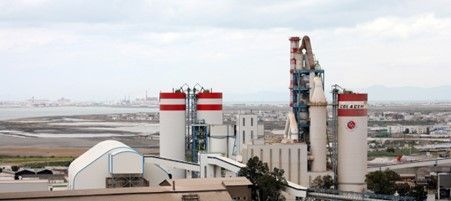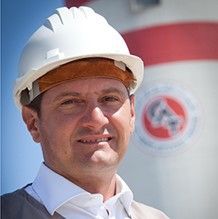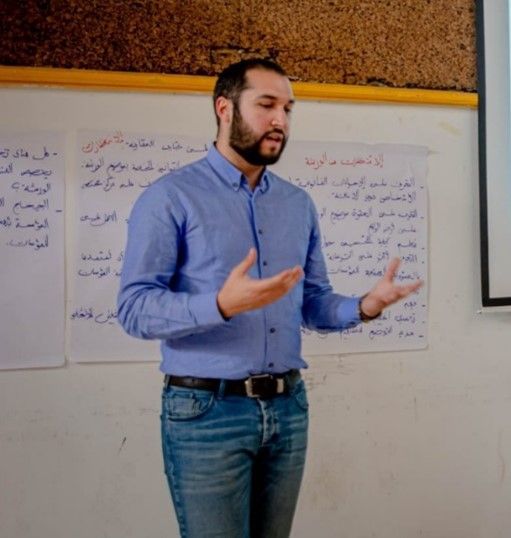Tunisia based CAT-COLACEM is Working Towards an Ambitious Goal of 50% reduction of CO2 Emissions by 2025
Elevating SDG 7 – Affordable and Clean Energy, SDG 13 – Climate Action, and SDG 17 – Partnerships for the Goals
Given the polluting nature of the cement industry, Tunisia’s foremost and oldest cement company, CAT-COLACEM, is determined to manage its environmental impact and reduce the carbon footprint of the company’s activities.
CAT-COLACEM has been a member of the United Nations Global Compact Network in Tunisia since 2012 and has been actively involved in the Network to access the needed resources to support its commitment.
The company set an ambitious goal of 50% reduction of Carbon Dioxide (CO2) emissions by 2025. By using alternative fuels instead of fossil fuels, and by replacing part of its purchased electricity with renewable energy generated by wind or solar farms, these reductions will be based on scientific data, with targets aligned with the 1.5°C global sustainability objective.

CAT-COLACEM is actively reducing Carbon Dioxide (CO2) emissions in its cement factory and quarrying activities with an ambitious goal of 50% reduction by 2025.
“As an organization we have chosen to address Sustainable Development Goal (SDG) 13 which focuses on climate action and measures to combat climate change,” says Managing Director of CAT-COLACEM, Mr. Giuseppe Colaiacovo.
The company, with its quarrying activities and clinker and cement production, emits large quantities of CO2, which is one of the Green House Gases (GHGs) that have a direct impact on climate change. To this end, the company is committed to reducing the negative environmental impacts of its operations while preserving the well-being of employees and local residents.
“Our involvement with the UN Global Compact over the last few years has been beneficial on several levels, in particular the strategic level. Thanks to the resources and workshops that the Tunisian Global Compact Network makes available to its members and the support it provides, we can achieve our objectives better,” Mr. Colaiacovo noted.

Giuseppe Colaiacovo, Managing Director of CAT-COLACEM.
CAT-COLACEM participated in the SDG Ambition Accelerator in 2021 which enabled them to raise their ambitions and establish how to integrate the priority SDG into the day-to-day management of their activities. Working with the UN Global Compact, the company defined its priorities in relation to the SDGs, set targets that reflected their level of ambition, defined sub-objectives, identified actions and paths to follow, and performance indicators to assess progress achieved.
While CAT-COLACEM did not face any resistance in mobilizing its people to get involved in the project to achieve its very ambitious targets, the regulatory landscape has not been as supportive. The company has had to work through difficulties in carrying out planned actions especially because current regulations do not yet facilitate the development and use of renewable energies (wind, solar, cogeneration, etc.) at an advanced level.
As a result of these regulatory challenges, the company abandoned an initial project to purchase clean electricity in the form of wind power from a private operator who was planning to install a wind farm and sell them the electricity produced. CAT-COLACEM however refused to be deterred and instead joined forces with other cement plants to set up a 100 Mw solar park project.
This project will enable the company to replace purchased electricity produced from fossil fuels with clean electricity, consequently reducing their CO2 emissions, and supporting SDG 7 – Affordable and Clean Energy.
CAT-COLACEM’s objective is to reduce CO2 emissions by 50% by 2025, and it has already achieved a 10% reduction. Although their action plan has experienced delays, the company continues to push forward despite the challenges.
The company is actively lobbying and advocating for the promulgation of new government regulations that support clean energy. They are also encouraging other players in the cement sector to commit to programs in line with the priority SDG 13 to reduce GHG emissions and preserve biodiversity in the quarries used by cement manufacturers. The company is also championing actions to protect the health of local residents and improve their daily lives through environmental and social actions.
By facilitating the implementation of projects for the production, transport, and consumption of renewable energies, CAT-COLACEM is driving forward in its ambition to achieve the targets set with the means and resources available and within acceptable timescales.
Interim Executive Director of the UN Global Compact Network Tunisia, Yassine Majdoub, noted “The UN Global Compact provides a wide range of support, programs, and resources to help companies like CAT-COLACEM better define their sustainability objectives, improve their sustainability governance framework, and ensure more sustainable business operations.
“We are proud of the progress that CAT-COLACEM has made so far in achieving its SDG ambition and use this opportunity to invite other organizations to take up the sustainability challenge as well to achieve the SDGs” he says.

Yassine Majdoub, Interim Executive Director, UN Global Compact Network Tunisia.
Learn more about the programs of the UN Global Compact Network in Tunisia.
